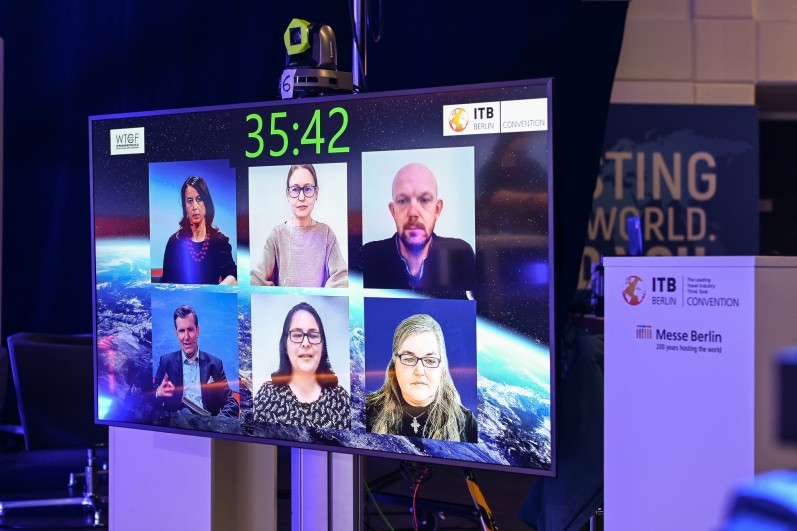Page content
NEWS-Blog

Everyone has to do their bit for sustainability
March 10, 2022
Communicating makes it easier for customers to choose corresponding products
Carbon-neutral tourism is becoming an increasingly important issue for companies and customers alike. At the session entitled ’From Carbon Neutral Destinations to Regenerative Tourism: Boundaries and Implementation’, moderated by Prof. Dr. Willy Legrand and Xenia zu Hohenlohe, the focus was on achieving carbon-neutral targets. Taking part in the discussion were Sally Davey, CEO of Travalyst, Jeremy Smith, co-founder of Tourism Declares a Climate Emergency, Petra Thomas, managing director of forum anders reisen e.V. – association for sustainable tourism, and Jennifer Koskelin Gibbons, campaign manager for The Palau Pledge at the Palau Legacy Project.
Jeremy Smith was convinced that “together, we can create a genuinely sustainable tourism industry that can make a positive and lasting contribution to the world.“ If one wanted to protect the climate the problem was not with tourism but in one’s back yard. What was needed was to pull together to involve local residents, nature, tourism companies and travellers as one.
Jennifer Koskelin Gibbons talked about how she had experienced changes in the climate and society since her childhood in Palau. “In Palau we grow up in a system that traditionally protects the ocean as our father and the land as our mother.“ The challenge now was to ensure the lessons and awareness of the past benefited modern and contemporary tourism projects. In Palau, travellers gave a promise to the island nation’s children – a pledge they had to sign when they arrived (www.palaupledge.com). “At first there were misgivings this could interfere with processing arrivals“, Koskelin Gibbons said. However, the opposite was the case. Visitors take selfies with their stamps and signatures, so that from the start of their trip sustainability is on their minds.
For Petra Thomas the main issue was to liberate tourism from its negative image. “Travelling can have a positive impact on a destination and the local population – that is something we need to make clearer and ensure that it is understood better.“ In the meantime people were ready to take part in a transformation. The pandemic had made them more aware in that respect. The talk is now of sustainable solutions in transport and with socially oriented local concepts. “We need to act now – not when the law says we must,“ said Thomas, appealing to all decision-makers. It was also important to make sustainable approaches and concepts more recognisable and transparent. In that context, her suggestion was a sustainability label on products that could provide orientation.
Sally Davey was also convinced that a lot of customers were keen on sustainable tourism products. “We must help companies to work better together – and ensure that customers can find out about and understand the positive ideas that already exist.“ Tourism was not a separate entity from society. What was good and healthy for individual travellers could also be applied to the bigger picture. “Sustainability begins in one’s back yard. We just have to get started.“

.svg)
